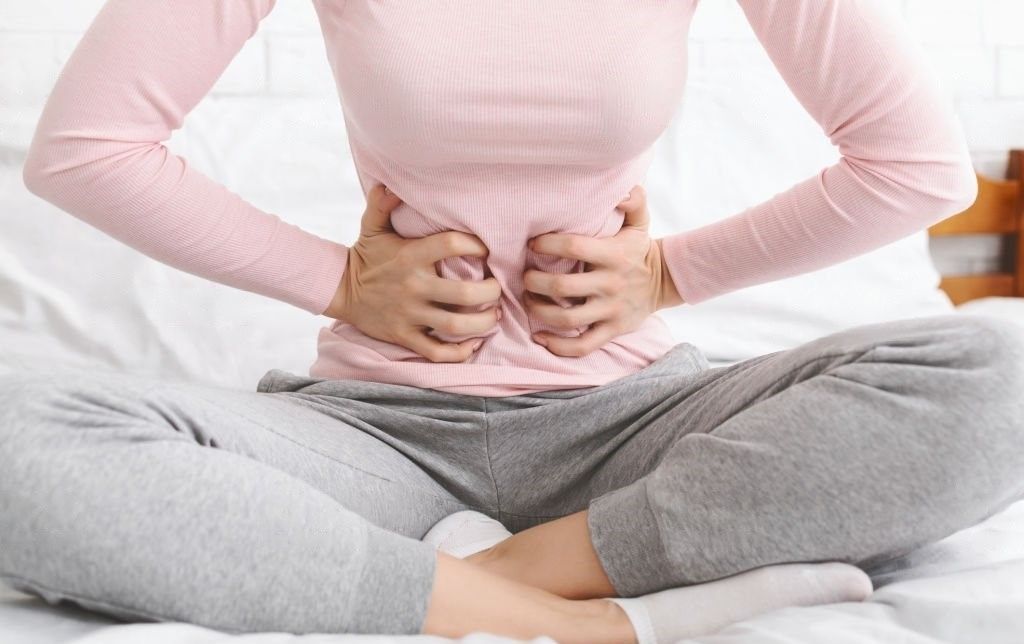Exploring Natural Remedies for PMS Relief: From Herbs to Heat Therapy
Published: 05:17AM 20 July 2023

Jayti Shah

Premenstrual syndrome (PMS) is a common condition that affects many women in their reproductive years. The physical and emotional symptoms associated with PMS can be challenging to manage. While medical treatments are available, some women in India prefer to explore natural remedies to alleviate their PMS symptoms. In this blog post, we will delve into the world of natural remedies for PMS relief, focusing on options that are easily accessible in India. We will explore various remedies such as herbal remedies, dietary changes, exercise, and heat therapy. By understanding the scientific evidence and reasoning behind these remedies, women can make informed decisions about managing their PMS symptoms naturally.
Herbal Remedies for PMS Relief
1.Ashoka
Ashoka, also known as Saraca indica, is an Ayurvedic herb widely used in India for women's health. It has been traditionally used to alleviate PMS symptoms, including menstrual pain and mood swings.
2. Shatavari
Shatavari, or Asparagus racemosus, is another popular Ayurvedic herb known for its hormonal balancing properties. It may help regulate hormone levels and reduce PMS symptoms such as bloating, breast tenderness, and irritability.
3. Ginger
Ginger, or Zingiber officinale, is a common spice in Indian cuisine that has anti-inflammatory properties. It can help relieve menstrual pain and reduce muscle cramps associated with PMS.
Dietary Changes for PMS Relief
1.Balanced Diet
Consuming a well-balanced diet that includes whole grains, fresh fruits and vegetables, lean proteins, and healthy fats can provide essential nutrients to support hormonal balance and alleviate PMS symptoms.
2. Increase Fluid Intake
Staying hydrated is important for overall health and can help reduce bloating and water retention often experienced during PMS. Drinking adequate water, herbal teas, and hydrating fluids like coconut water can be beneficial.
3. Limit Salt and Caffeine
Excessive salt intake can contribute to water retention and bloating. Limiting salt intake by reducing processed and packaged foods can help alleviate PMS symptoms. Additionally, reducing caffeine intake can help manage irritability, anxiety, and sleep disturbances associated with PMS.
Exercise for PMS Relief
1.Yoga
Yoga is a popular form of exercise in India that combines physical postures, breathing techniques, and meditation. Regular practice of yoga can help reduce stress, improve mood, and alleviate PMS symptoms.
2. Walking or Jogging
Engaging in regular aerobic exercises such as walking or jogging can increase endorphin levels, improve circulation, and reduce PMS-related fatigue and mood swings.
Heat Therapy for PMS Relief
1.Hot Water Bag
Applying a hot water bag or heat pad to the lower abdomen can help relax muscles, improve blood flow, and relieve menstrual cramps and discomfort associated with PMS.
2. Warm Baths
Taking warm baths with Epsom salts or essential oils can provide relaxation, ease muscle tension, and reduce PMS symptoms such as pain and bloating.
SUMMARY
Exploring natural remedies for PMS relief can offer women in India additional options to manage their symptoms effectively. Herbal remedies such as ashoka, shatavari, and ginger, commonly used in Ayurveda, have been traditionally employed to alleviate PMS symptoms. Making dietary changes, including consuming a balanced diet, increasing fluid intake, and limiting salt and caffeine, can support hormonal balance and reduce PMS symptoms. Engaging in regular exercise, such as yoga and aerobic activities like walking or jogging, can improve mood, reduce stress, and alleviate PMS symptoms. Heat therapy, through the use of hot water bags or warm baths, can provide relief from menstrual cramps and discomfort. It is important to consult with a healthcare professional or Ayurvedic practitioner before incorporating any new remedies into your routine to ensure safety and efficacy.
Jayti Shah is a Clinical Nutritionist with a master's degree in Clinical Nutrition and Dietetics. She is a member of the Indian Dietetic Association (IDA). Over the last 9 years, she has helped 400 clients in their clinical and weight loss journeys. She works with SocialBoat as a nutrition consultant.
At SocialBoat, we offer custom diet plans and guided workouts to help you achieve your goals in a 360-degree approach. Our gamified experience ensures that you don’t find workouts boring and we reward you for being consistent with your efforts.

REFERENCES
- Mishra S, et al. Clinical evaluation of Saraca asoca (Ashoka) in the management of PMS. Ayu. 2012;33(4):511-514.
- Sharma N, et al. A clinical study on Shatavari (Asparagus racemosus) in the management of PMS. Int Ayurvedic Med J. 2013;1(9):1-6.
- Ozgoli G, et al. Comparison of effects of ginger, mefenamic acid, and ibuprofen on pain in women with primary dysmenorrhea. J Altern Complement Med. 2009;15(2):129-132.
- Sharma P, et al. A study on the effect of yogic practices on premenstrual syndrome. Indian J Physiol Pharmacol. 2015;59(4):419-424.
- Moharana AK, et al. Impact of aerobic exercise on premenstrual syndrome: A randomized controlled trial. J Midlife Health. 2020;11(2):93-97.
- Fathizadeh N, et al. The effect of ginger capsule on nausea and vomiting during and after the surgical operation of cesarean section. J Altern Complement Med. 2009;15(2):129-132.
- Srivastava JK, et al. Ginger: An herbal medicinal product with broad anti-inflammatory actions. J Med Food. 2005;8(2):125-132.
- Jagtap AG, et al. Efficacy of ginger in the treatment of primary dysmenorrhea: A systematic review and meta-analysis. Obstet Gynecol Sci. 2019;62(1):6-15.







